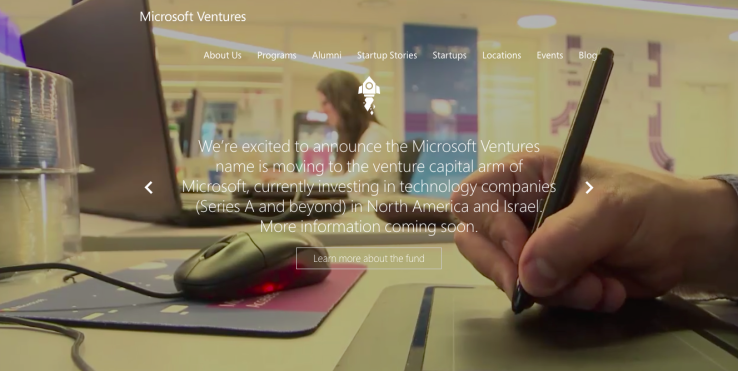

As Google moves ahead to develop its Area 120 in-house incubator program, Microsoft is also looking to get more of its startup ducks in a row. On Monday, the company quietly, officially unveiled Microsoft Ventures — a new arm that will focus on “Series A and beyond” investments in North America and Israel, with the first investments to be revealed in the coming weeks.
If the name and purpose of Microsoft Ventures sounds familiar, it should for a couple of reasons.
In January, Fortune reported that Microsoft had poached the former leader of Qualcomm Ventures, Nagraj Kashyap, to lead a new operation in Redmond to be called Microsoft Ventures. Kashyap, whose official title is corporate vice president at Microsoft, is indeed the person leading the charge.
Microsoft Ventures, similar to Google’s GV, will not have a specific fund size as such; nor will it have a target number of investments. And so far there are no details on what typical round sizes will be. Kashyap notes the organization was created in collaboration with Peggy Johnson, Microsoft’s EVP of business development, and it will be starting out with “a presence” in Redmond, San Francisco, New York and Tel Aviv.
The bigger idea, it seems, is to give Microsoft an earlier look at companies that it might at some point acquire or at least help influence in the larger ecosystem, to follow routes that are more Microsoft-friendly. In fact, this is a big deal: while Office 365 may be huge, in areas like mobile Microsoft has almost no mindshare where developers are concerned, and there’s probably concern that this could expand into Microsoft stronghold areas like enterprise, as titans like Apple, Google and Amazon continue to gain ground.
“In Microsoft’s history of engaging with and supporting start-ups, we’ve done a lot of investing, but not a lot of early stage. Because we would often invest alongside commercial deals, we were not a part of the early industry conversations on disruptive technology trends,” Kashyap writes in the blog post explaining the new operation. “With a formalized venture fund, Microsoft now has a seat at the table.”
Further back, and the other reason why “Microsoft Ventures” should sound familiar, is because the name was previously used as an umbrella for all of its accelerator and seed-stage funding operations (like this one), although it has somewhat been less visible since its creator Rahul Sood departed the company.
Now, the operation formerly known as Microsoft Ventures is set to continue under a new name, Microsoft Accelerator, Kashyap notes. “Microsoft Ventures will focus on start-up investments while Microsoft Accelerator will focus on start-up enablement, primarily through our seven accelerators around the world,” he writes.
To add a little bit of extra confusion into the mix, right now, all of the other pages at the “Microsoft Ventures” URL are related to the old operation under the new Microsoft Accelerator name.
As for what areas Microsoft Ventures will target, look at Microsoft’s own business lines for guidance.
“Given that the move to the cloud remains the single largest priority for the industry, identifying the bleeding-edge companies who complement and leverage the transition to the cloud is key to our investment thesis,” he continues.
“Companies developing product and services that complement Azure infrastructure, building new business SaaS applications, promoting more personal computing by enriching the Windows and HoloLens ecosystems, new disruptive enterprise, consumer productivity, and communication products around Office 365 are interesting areas from an investment perspective. In addition, and on a more horizontal axis, you should expect to see us invest in companies who are doing work in the areas for machine learning and security.”
Notably… no mention of mobile in there.
For a corporate VC operation, the list of what Microsoft will focus on, of course, is unsurprising but it also means that either other things like on-demand services or e-commerce (or, yes, mobile plays) will either get shoe-horned into the above categories; or might be ruled out altogether.
Look out for the first investments in the coming days and weeks, Kashyap notes.

